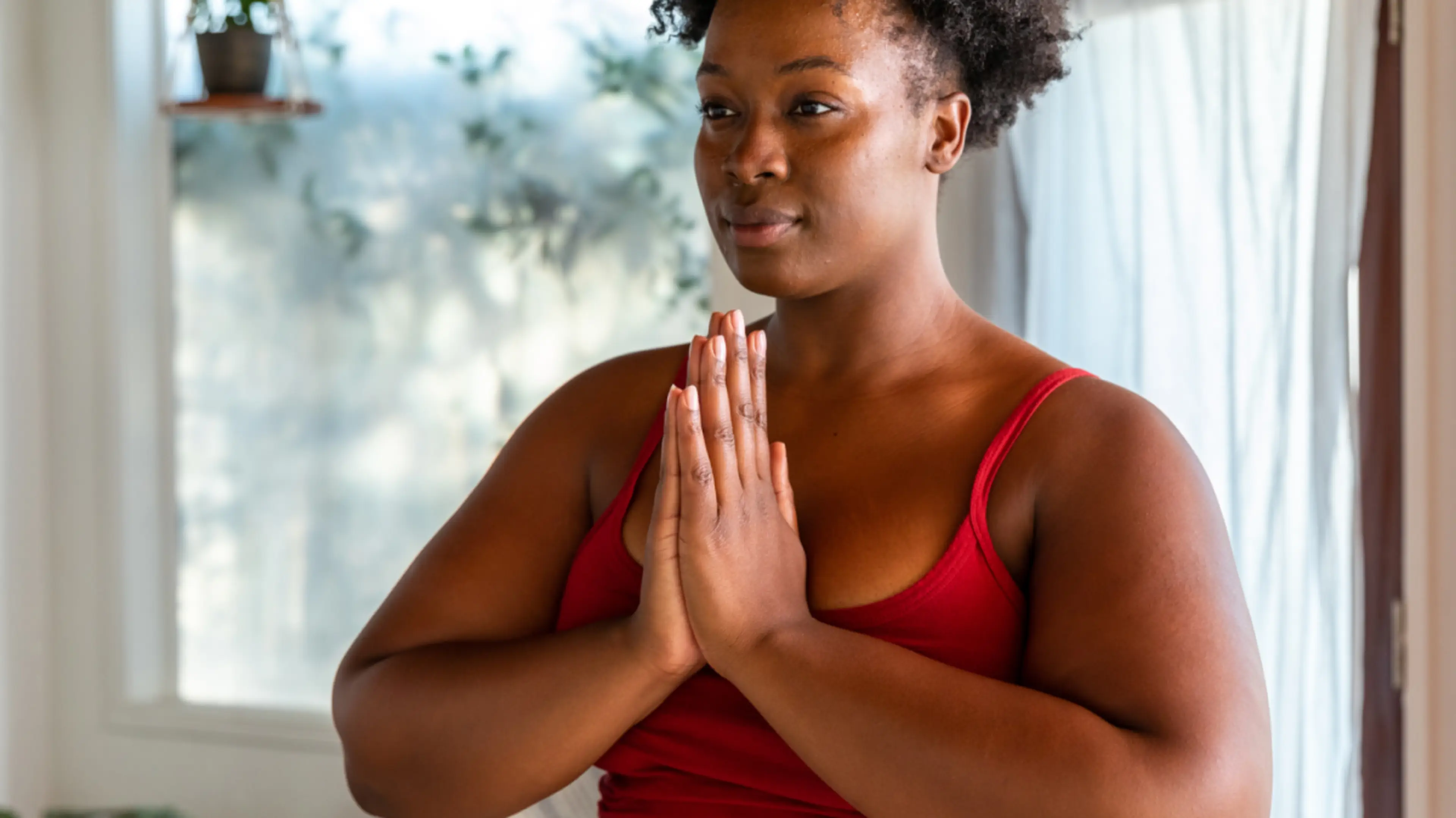TLDR: As a new mom, it’s easy to put all of your focus on your newborn baby and family. But it’s okay—important, actually—to also prioritize your own needs. Here are some postpartum self-care ideas that can help you feel more centered, less anxious, and more connected with yourself.
Just had a baby? Congratulations! Your precious bundle of joy is home and all wrapped up in love. While it’s undoubtedly a happy time, you’re likely also feeling the struggle of balancing your new identity with all the other stuff going on in your life.
From nap-time to feeding, dishes to diaper changes, mothers more often than not tend to put their needs on the back burner. Maybe you’re going on day three of not showering, have your hair tied up in a messy bun, and you’re wearing the same baggy clothes you’ve been rocking for the last five days—we feel you. Postpartum self-care is probably not at the top of your list.
As overwhelmed as you might feel, don’t de-prioritize yourself. “You know the spiel when you’re on an airplane and the flight attendant reminds you to put on your own oxygen mask before assisting others? Well, the same principle applies to motherhood,” says Dr. Amanda McLellan, a clinical therapist and maternal mental health specialist. “By taking care of yourself, you ensure you have the strength, patience, and energy to care for your little one.”
Amid the newborn chaos, give yourself permission to dive into these postpartum self-care tips to help boost your confidence and well-being.
Make time to be kind to your mind
As a mom, you may (intentionally or not) take on all the responsibilities of caring for your family. This, paired with negative self-talk, negative self-image, or added stressors can lead to you feeling overwhelmed and on edge.
McLellan notes that this is exactly when you should be taking care of yourself. “Self-care plays a crucial role in alleviating the mental and emotional toll that can accompany the postpartum period,” McLellan says. “Taking time to rest, engaging in activities that promote relaxation, and seeking support from others helps to prevent burnout and reduces the risk of developing postpartum mood and anxiety disorders.”
While you can’t self-care your way out of depression and anxiety, doing some things for yourself can help. “By prioritizing self-care, new moms equip themselves with the necessary resources to maintain their mental and emotional well-being and adapt to the challenges of early motherhood,” she says. Here’s a few self-care practices you can start today:
Journal when you feel anxious: It’s helpful to put into words what you’re feeling—there’s also plenty of research on how journaling benefits your mental health1 , including the fact that it can promote acceptance, and allow you to move forward.
Explore CBT or talk therapy: This is a great time to connect with a therapist if the anxiety you’re feeling is overwhelming. Check with your insurance since a lot of this type of care is usually covered.
Spend time outdoors: It’s not just about getting fresh air. There’s research on how getting into nature benefits you physically and mentally2 , and you don’t have to make it to your nearest national park—hit up a local park for walks, or if you’re lucky enough to have a backyard or garden, you can head outside without going far.
Rest: This can seem like a tall order when you have a newborn to care for and are already operating on little sleep, but it’s also easy to tell yourself there’s no time to rest. It can be a catnap when your partner or someone else can watch your baby, but it doesn’t have to involve sleep—it’s about giving yourself space to turn off your brain and forget about your to-do list. If you can’t nap, give yourself five while sitting on your couch or bed.
If these methods don’t seem to be working, talk with your doctor about adding medication to your treatment—there are plenty of options to help with anxiety that are safe even if you’re breastfeeding.
Practice mindfulness & meditation
There is a growing body of evidence that shows the benefits of meditation. This practice can reduce stress and anxiety, increase mindfulness and awareness, and help you fall asleep and stay asleep longer.
Affirmations for self-care and self-love are a great place to start. Affirmations are as simple as practicing positive self talk. It may feel silly to talk to yourself in the mirror, but science has proven that speaking positive affirmations to yourself positively affects your brain chemistry3 . Plus, they take little time to do, require little or no special equipment, and can be used in a variety of different environments (think home, on a drive, sitting in an office, or even when you’re laying in bed).
McLellan also touts this mindfulness exercise for new moms: “One of my favorite ways to ground myself in moments of overwhelm that I share with all of the moms I work with is the ‘5,4,3,2,1’ activity. Take a deep breath in, release, and look around wherever you are and notice five things you can see, four things you can touch, three things you can hear, two things you can smell, and one thing you can taste. End the exercise with another deep breath in and out and notice how you feel, without judgment. Repeat a few more times if needed.”
No matter where you are in your journey through motherhood, meditation can help.
Move your body
Have you heard that exercise releases endorphins, and endorphins make you happy? It’s true, but remember, our bodies change in many ways to prepare for childbirth (whether you delivered vaginally or via C-section). Give it some time to recover, and remember not to push yourself too hard. If you’re not sure where to begin, check out this fitness guide for postpartum moms.
Start with something like a 10-20 minute walk. Walking is completely free, self-paced, and you can bring your family along for additional bonding time. If you’re ready to take it up a notch, you can try fitness classes like yoga or pilates. They’re perfect for recovering from labor and building your strength back before you move back into, or begin, more intense exercises.
Let go of comparison
In our age of smartphones and hyper-connectivity, it’s easy to come down with a case of comparisonitis. Seeing influencer moms with a full face of makeup in their delivery rooms, celebrities with “perfect” bodies days after giving birth, or even watching babies hit milestones before yours can leave you feeling hurt and confused.
We’re here to remind you that everything happens on its own time. Your body has just done an amazing thing. It deserves time to rest and heal. Do not feel like you have to bounce back to make anyone else happy. Your child is learning a million things right now, and they’ll reach those milestones when it’s right for them.
So put down the phone, stop the scrolling, and remember that you’re doing great.
Rediscover your favorite hobbies
Think about squeezing in some reading during nap-time. Or ask grandma to babysit while you visit the salon. Maybe try that painting class you’ve always wanted to sign up for. Think about what you loved before you welcomed your little one and what’s feasible for you, your budget, and your schedule. With each accomplishment, you’ll feel a little bit closer to who you were before you became a mom.
Lean on your support system
Utilize your friends and family when you can—and don’t let mom guilt hold you back. Repeat after us: You deserve time away! And don’t feel guilty about asking a friend or your parents to come over once a week and help with your baby; those closest to you probably want to help out, too, but don’t know exactly what you need.
If you don’t have support nearby, try joining a virtual support group. You might even enjoy one that’s hosted by a lactation consultant or midwife. They’re fun ways to get helpful advice, as well as learn from and share with others who might be going through the same struggles as you.
In short: don’t forget to take care of yourself
Caring for your mind and body begins with you, and prioritizing self-care during the postpartum stage is the first step. “Self-care is not a selfish act; it's an act of self-preservation, enabling you to show up fully for your baby while still honoring and nurturing your own needs,” says McLellan.
If you’re feeling stressed, anxious, or overwhelmed, it might be time to discuss your mental health with a professional. From mindfulness and therapy to exploring medication, there are options to help you feel better again.












